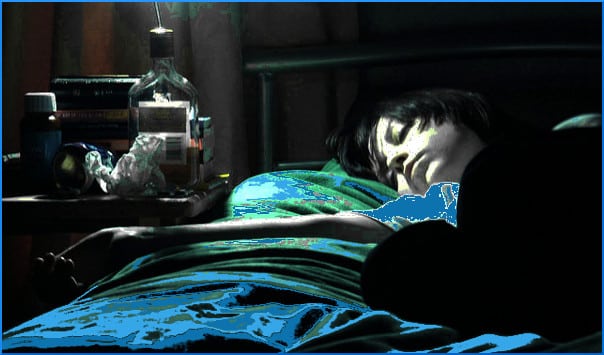
The previous post introduced readers to Anne Lamott, self-taught expert on a lot of subjects, including eating disorders and addictions in general. She knows a lot about the plight of a child in a household ruled by alcoholism or any other life-warping secret.
In the field of helping obese children, professionals wish they could believe that all parents share a single, lofty goal: to support and nurture the child in every possible way. Sadly, a vast number of parents are simply not equipped for the task. This is particularly true when they happen to have caused the child’s problem in the first place — which opens up a lot of possibilities.
It hurts to contemplate this, but a woman might have a child on purpose, and prenatally assign that baby the job of convincing the baby’s father to propose marriage. A man facing an overseas assignment might purposely sabotage family planning efforts, to ensure that his wife is uncomfortably and unattractively pregnant while he is away.
All too often, a child is born into a scenario where she or he is expected to immediately start helping the parents in some way — by making their parents happy, by giving them stuff to brag about, or boosting their self-esteem, by lavishing unconditional love on Mommy and Daddy. Before a baby draws his or her first breath, a ton of expectations are laid on it.
Sex is one. If a boy was devoutly hoped for, but a girl arrived, or vice versa, that child starts off with a handicap from Day One. Or the kid comes out musical, instead of athletic, as the parent had hoped. Failure has a thousand categories, and to disappoint a grownup, or several grownups, is almost unavoidable.
The fancy blindfold
Lamott discusses how in a family with addiction to alcohol, hard drugs, rage, etc., the child is assigned one primary duty, which is pretending not to see. At a spiritual retreat with Ram Dass (a cultural icon since the 1960s), Duncan Trussell, and other sages, Lamott described the alcoholic home, where for a child, survival depends on metaphorically “signing a contract.”
This is an unvoiced but necessary agreement to disregard the irregularities. If you notice the dysfunction, you will have feelings about it, which is tantamount to “wrecking everything for everyone.” Lamott writes,
If you’re paying attention in an alcoholic home, you’re seeing stuff that they can’t bear for you to see, or to even know… Their life depended on us agreeing not to see what was going on, and so it’s very very hard to trust the narration of your own life… You’ve been told that what you see is not actually going on. By extension, what you felt is not actually what you felt…
Threatened parents skillfully explain to children how and why they are not actually feeling anything. In fact, that goes both ways. Addicted parents are adept at convincing children that neither they nor the children feel what they obviously feel. They engage in the worst kind of “gaslighting,” which is making someone deny the evidence of their own senses. It’s no wonder kids react by “stuffing” their feelings, or express their chronic anxiety through displacement behaviors like crunching snacks between their teeth all day long.
Typically, the burden is not equally distributed. Often, a family assigns one child to shoulder the blame and be the Official Patient, which lets everyone else off the hook. In many cases, the designated sickie is the obese child. Lamott says,
It’s best for the child to think he or she is the problem. Then there is toxic hope, which is better than no hope at all, that if the child can do better or need less, the parents will be fine.
Your responses and feedback are welcome!
Source: “About Almost Everything,” PenguinRandomHouse.com
Source: “Anne Lamott Quotes,” Goodreads.com
Source: “Duncan Trussell Family Hour 301: Anne Lamott and Raghu Markus,” IHeart.com, 08/16/18
Photo credit: Lala Photography at JoLi Studios Colchester on Visualhunt/CC BY-SA

 FAQs and Media Requests:
FAQs and Media Requests: 











